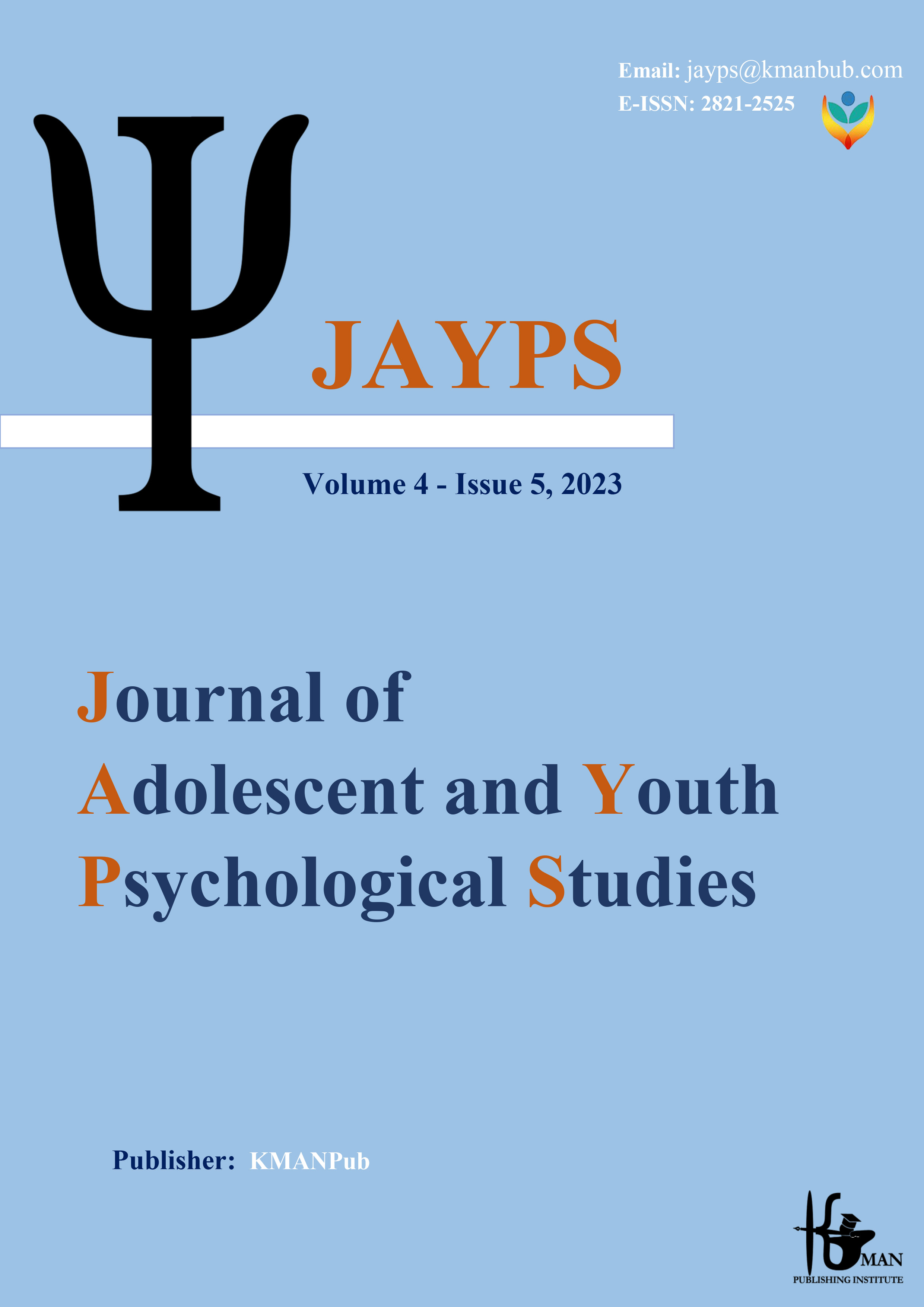Designing a model of family-oriented psychological strategies and evaluating its effectiveness on the spiritual vitality of secondary school students
Keywords:
Psychological strategies, family-oriented, spiritual vitality.Abstract
Background and Aim: Spiritual vitality, a combination of the characteristics of spirituality and vitality will play an effective educational role in the mental health of the individual and society. This research aimed to design a family-centered psychological strategies model and evaluate its effectiveness on students' spiritual vitality. Methods: The research was based on the type of mixed data of sequential exploratory type in two qualitative and quantitative parts using thematic analysis method based on prism model and quasi-experimental type of pre-test-post-test with a control group and follow-up stage. The studied population in the qualitative section 1) Sand analysis with a systematic review of theoretical foundations and empirical background 2) Participants include a) university professors; b) The experts of the office of Parents and teachers association and in the quantitative section were female students of the second year of high school and their parents in Tehran. The sample size was calculated as 18 students in the qualitative part using the theoretical saturation method and 90 students and their parents in the quantitative part according to Cochran's formula. The sampling method in the qualitative part of the non-probability method was a targeted chain type, and in the quantitative part, it was a targeted type. The measurement tool was used in the qualitative part of the systematic review of theoretical foundations and experimental background, and semi-structured interviews with professors and experts, and in the quantitative part, the spiritual vitality questionnaire of Afrooz et al. (2019) was used. The method of data analysis was used in the qualitative part based on the thematic analysis method, and in the quantitative part, mixed analysis of variance test, Bonferroni post hoc test, and correlated t-test were used. Results: The results of the research showed: 1) family-centered psychological strategies including 10 strategies: cognitive game-making strategy, relaxation training, self-awareness strategy, communication strategy, problem-solving strategy, stress management strategy, coping strategy and conflict resolution strategy, anger control strategy, critical thinking strategy and time management strategy. 2) According to the calculated strategies, theoretical bases, and analysis of interviews, the conceptual model of family-centered psychological strategies was designed and based on the conceptual model, theoretical foundations, and according to the opinion of experts in this field by integrating the cognitive-behavioral approach and the life skills program, the operational plan of the model of family-centered psychological strategies was compiled and adjusted. 3) Its validity was reviewed and confirmed based on the opinion of 30 experts in this field according to Lincoln and Goba indices, and it indicated the validity and validity of the program. Conclusion: The results show that the family-centered psychological strategies intervention program increased the spiritual vitality of students and their parents, and these results were stable in the three-month follow-up, indicating that the psychological intervention program has the necessary reliability and validity.
Downloads
Downloads
Published
Submitted
Revised
Accepted
Issue
Section
License

This work is licensed under a Creative Commons Attribution-NonCommercial 4.0 International License.









